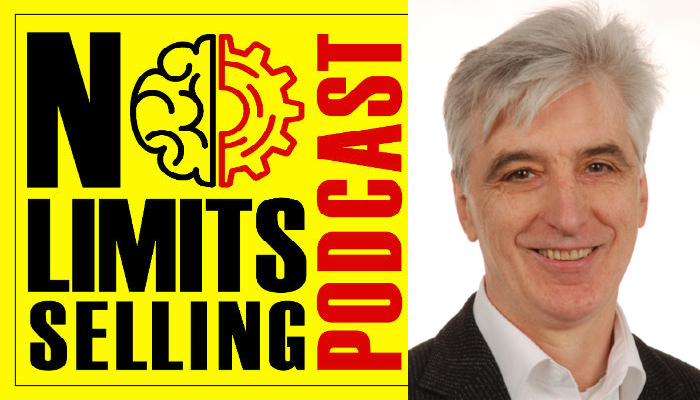The Future of NLP by Karl Nielson
On Episode 58 of The No Limits Selling Podcast, we have Karl Nielson, Founder of the Institute of NLP. Karl Nielson is an NLP master trainer with university degrees of a Ph.D., Psychology, and Sociology. Karl is an author of 4 books, and he has done 7 teaching positions in various universities, one being in Berlin.
He has done projects to which he has contributed scientific research towards. Karl has had 14 achievements in NLP & coaching. This podcast is about the future of NLP.

Contact Karl:
[EDITOR’S NOTE: This podcast is sponsored by No Limits Selling. It is a fun, fast-paced podcast that delivers hard-fought business advice that you can implement today to improve your sales and performance]
Interested In Our Real Estate Coaching Services? Explore Our Website: Link
Feeling Not Well Today? You Can Use Our Mindset Boosters App To amp Up Your Mood: Link
Find us on Social Media:
LinkedIn | Facebook community | Instagram
Like what do you listen to? Subscribe to our podcast!
Ready to become fearless? We can help you become fearless in 60 days so you accomplish more in your career Schedule A 15 min Call with UmarSummary
Introduction and Definition of NLP
The podcast begins with the host, Umar Hameed, introducing Karl Nielson, the founder of the Institute of NLP. When asked about his definition of NLP, Nielson likens it to humanity, always developing and evolving. He describes NLP as a tool that helps change the mind, allowing individuals to control their thoughts instead of being victims of them. Nielson emphasizes the importance of being able to analyze and change one's mindset.
The Evolution of NLP
Nielson discusses the evolution of NLP, stating that it has gone through waves of development. He mentions that NLP has learned that changing beliefs can alter emotions and the way the world is experienced. Nielson also introduces the concept of NLP as a philosophy, touching on deeper existential questions such as the meaning of life and what happens after death.
NLP and Mindfulness
The conversation then shifts to the connection between NLP and mindfulness. Nielson explains that mindfulness, which originated from Buddhism, was introduced to the world through mindfulness-based stress reduction. He suggests that NLP can help individuals delve deeply into themselves, a process that can be challenging for many.
The Future of NLP
Nielson and Hameed discuss the future of NLP, particularly in the context of new challenges such as artificial intelligence and climate change. They agree that the humans who will contribute to and change the world are those who are self-actualized, a process that can be facilitated by NLP and mindfulness. Nielson mentions that large companies like Google have recognized this and have implemented mindfulness programs.
Conclusion
In conclusion, the podcast with Karl Nielson on No Limits Selling delves into the concept of Neuro-Linguistic Programming (NLP), its evolution, and its connection with mindfulness. Nielson defines NLP as a tool for personal development, enabling individuals to control and change their thoughts and mindset. He discusses the evolution of NLP, emphasizing its role in changing beliefs and emotions, and its deeper philosophical implications.
The conversation also explores the intersection of NLP and mindfulness, highlighting their combined potential in facilitating self-actualization. Looking towards the future, Nielson underscores the importance of these tools in navigating new challenges such as artificial intelligence and climate change, and notes their increasing recognition and implementation in large companies like Google. The podcast underscores the transformative potential of NLP and mindfulness in personal and societal development.
Questions & Answers
What is Neuro-Linguistic Programming (NLP) according to Karl Nielson?
How has NLP evolved over time?
What is the connection between NLP and mindfulness?
How can NLP and mindfulness help in facing future challenges like artificial intelligence and climate change?
Are companies recognizing the importance of NLP and mindfulness?
What is the role of NLP and mindfulness in personal and societal development?
Don’t miss this opportunity to transform your real estate career with one-on-one coaching. As an experienced real estate coach, I, Umar Hameed, am dedicated to helping you unlock your full potential and achieve your real estate goals. To learn more about who am I and my clients ↓
If you’re ready to take the next step, book an appointment with me today and begin your journey toward success in the real estate industry.
